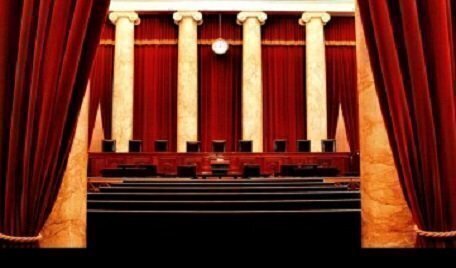On Tuesday, the Supreme Court will hear arguments in two significant cases about Title VII and discrimination based on sexual orientation or gender identity.
 The first case consolidates two cases into Bostock v. Clayton County, Georgia. In his petition to the Court, Gerald Lynn Bostock wants the Justices to decide the following question: “Whether discrimination against an employee because of sexual orientation constitutes prohibited employment discrimination ‘because of … sex’ within the meaning of Title VII of the Civil Rights Act of 1964.”
The first case consolidates two cases into Bostock v. Clayton County, Georgia. In his petition to the Court, Gerald Lynn Bostock wants the Justices to decide the following question: “Whether discrimination against an employee because of sexual orientation constitutes prohibited employment discrimination ‘because of … sex’ within the meaning of Title VII of the Civil Rights Act of 1964.”
Bostock filed a lawsuit against Clayton County after he was terminated from his job as a child welfare services coordinator. Bostock claims he was fired because “of his sexual orientation, his participation in a gay recreational softball league, and his promotion of volunteer opportunities with the County to league members.” The county says it fired Bostock for conduct unbecoming an employee, specifically related to a financial audit. Bostock believes the audit was a pretext for his firing.
Bostock sued on his own in 2016 in the United States District Court for the Northern District of Georgia and later received professional representation, alleging a Title VII civil rights violation. The county argued Bostock could not use his sexual orientation to sue under Title VII. The District Court dismissed Bostock’s complaint after the 11th Circuit ruled in a similar case, Evans v. Georgia Regional Hospital, that Title VII discrimination did not apply to sexual orientation claims.
His appeal was denied by the 11th Circuit, but Bostock’s attorneys argued the circuit’s precedents conflicted with two United States Supreme Court decisions: Price Waterhouse v. Hopkins (1989) and Oncale v. Sundowner Offshore Services (1998). The Supreme Court in April 2019 accepted Bostock’s case and combined it with a similar case, Altitude Express v. Zarda.
The second arguments on Tuesday deal with another discrimination question: Does Title VII prohibit discrimination against transgender people based on their status as transgender or sex stereotyping under Price Waterhouse v. Hopkins?
In R.G. & G.R. Harris Funeral Homes Inc. v. Equal Employment Opportunity Commission, the Justices will consider an appeal from funeral homeowners in Michigan. The dispute centers over Aimee Stephens, who told the funeral home in 2013 she started identifying as a woman. When Stephens was hired in 2007, Stephens identified as a man.
“Stephens’s plan was to present as a woman and wear female attire at work,” Harris says in its petition to the Court. The funeral home terminated Stephens’ employment because of dress-code violations and a belief the change “disrupted the grieving and healing process” of “clients mourning the loss of their loved ones.”
Stephens filed a Title VII complaint with the EEOC, and the EEOC then filed a lawsuit against Harris Funeral Homes. The lawsuit said the funeral home was “discriminat[ing] against an employee or applicant because of their sex, including on the basis of gender identity.”
The district court ruled for Harris Funeral Homes and said that transgender status or gender identity were not protected classes under Title VII. On appeal, the Sixth Circuit reversed and ruled for the EEOC. That court believed that under Price Waterhouse v. Hopkins, the funeral home violated Title VII.
“Discrimination against employees, either because of their failure to conform to sex stereotypes or their transgender and transitioning status, is illegal under Title VII. The unrefuted facts show that the Funeral Home fired Stephens because she refused to abide by her employer’s stereotypical conception of her sex, and therefore the EEOC is entitled to summary judgment as to its unlawful-termination claim,” the judges said. The current EEOC is supporting Harris Funeral Homes in its appeal at the Supreme Court.
Scott Bomboy is the editor in chief of the National Constitution Center.







